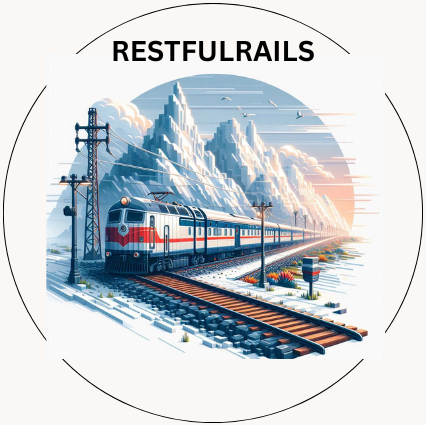
Should you lock in a reservation early to secure the best rates and choices, or wait until the last minute to snag potential deals?
When it comes to travel, folks usually find themselves torn between booking early or going for those tempting last-minute deals. It’s a classic dilemma, isn’t it? Let me break it down for you.
Booking early is all about planning and precision. You’re all set months in advance, locking in your flights and accommodations way before anyone else. Hop on your favorite airline’s website, and chances are you’ll snag that window seat you love or your dream room view. It’s like having a piece of mind in your pocket. Plus, it generally means you won’t be the one stressing when travel dates roll around. You already have everything set!
On the flip side, last-minute booking is a playground for the brave and adventurous. So, maybe you’re someone who thrives on spontaneity, just waiting to pounce on that unbeatable hotel rate or flight deal. Last-minute bookings can sometimes feel like a spontaneous adventure packed with surprising benefits. There’s a certain thrill in waiting till the eleventh hour and discovering a spot you never even thought of visiting.
Now, what about the common perceptions? Some folks think only daredevils wait till the last minute, but let’s be real—who hasn’t at least been tempted by those juicy, tantalizing last-minute offers? And some will shout from the rooftops about their loyalty to early bookings because they score the best spots and peace of mind. Both sides swear by their choice with an iron-clad belief based on past experiences.
There’s also a good deal of psych in the mix. Booking early often caters to those who need structure and dislike uncertainty, while last-minute deals satisfy the urge for flexibility and surprise. In the end, it’s really about what kind of traveler you are — the prepared planner or the spontaneous wanderer.
Advantages and Disadvantages: When to Choose Each Strategy
Booking early comes with a smorgasbord of benefits for those who like to have everything nailed down. You’ve got security in knowing your travel plans won’t suddenly become unmanageable or overly pricey. Plus, often you’ll have your pick of the litter when it comes to flights and hotel rooms. If you’re someone who craves a specific schedule or itinerary, booking early helps you build around that.
But let’s not forget, early booking isn’t all sunshine and roses. There’s the potential for paying a premium just for the comfort and peace of mind. And heaven forbid something changes; that early-bird booking can make flexibility a bit of a headache. You might find yourself tied down when you want to change plans.
Cue in the last-minute bookings, the wild cards of travel strategies. Here, the main draw is the thrill of savings, and who doesn’t love saving a buck or two? Sometimes travelers discover hidden gems at the very last moment, and it’s a fantastic tale to tell. You get to see fresh deals and can even decide on a whim—chasing that flash sale on a swanky hotel or a cool Airbnb you stumble upon.
Then again, last-minute can be tricky. The risk of not finding accommodation or a flight right when everyone else also decides to travel can leave you stranded or paying more than you hoped. If you’re going down this road, having a backup plan will save you the potential headache. It’s a bit like playing the lottery — sometimes you win big, other times not so much.
So, when do you choose each? If you’re heading on a business trip or need to arrive on specific dates, early booking is your best friend. For laid-back leisure trips, especially when you’re easy with your dates or destinations, last-minute deals can add some spice to your travel tale. Picking the right strategy comes down to knowing yourself as a traveler and understanding what your trip truly demands.
Strategizing for Success: How to Optimize Each Approach

For those who love to plan ahead, maximizing the benefits of booking early is all about timing and tools. It can be helpful to set alerts on travel booking platforms. These alerts can notify you when favorable rates pop up, helping you snag a great deal earlier than anticipated. Reward programs can be your best friend here too. Many airlines and hotels offer points systems that make your early bookings even sweeter. So, do your research and plan to pocket those rewards.
Being strategic with last-minute bookings requires a different kind of savvy. Flexibility is key here. You might not always get your first choice, but being open to alternative destinations or nearby airports can bag you incredible deals. Apps designed for last-minute bookings are lifesavers—often showcasing killer deals that aren’t advertised elsewhere. Keep an eye on flash deals as well; they come and go quickly.
Now, if you want the best of both worlds, blending spontaneity with sound planning could be your golden ticket. For instance, you might book your flight early to ensure you get to your destination, but leave accommodation open for last-minute adventures. This approach gives you structure without losing the element of surprise and opportunity. Vacation rentals or dynamic hotel bookings sometimes offer flexibility, allowing you to alter plans without major penalties.
Consider the successful booking stories of travelers who’ve mastered these strategies. There are folks who traveled Halfway around the world without breaking the bank by combining these techniques. Analyze what they did—did they use specific apps, leverage a unique reward program, or have a go-to travel mentor? By learning from the experiences of others, you can refine your strategy, making each trip a brilliant success.
Integrating SEO for Travel Bookings: Capturing the Audience
When it comes to boosting travel bookings, SEO is your trusty co-pilot. Here’s how you can use it to your advantage. Start by focusing on keywords that will attract the right audience. Think ‘last-minute travel deals‘ or ‘early bird travel savings.’ These phrases tap directly into what real folks are searching for when making their last-ditch travel plans or planning months in advance.
Long-tail keywords are like hidden gems in SEO strategy, capturing specific user intent. Instead of going broad with ‘travel deals,’ dial it down to something like ‘affordable last-minute beach vacations in Florida.’ Keywords like this help you stand out and drive targeted traffic to your website or travel service.
Creating content that ranks well and feels good to read is about putting people first. Offer tips, insights, and experiences that resonate with readers and establish your expertise. Sharing well-researched stories or insights about travel booking trends builds authority and shows you as a trustworthy advisor.
Reviews and social proof have power in building both trust and SEO. User reviews not only inform future travelers, but they also enhance your search ranking. Encouraging satisfied customers to share their positive experiences can give a nice boost to engagement and online presence. It’s a win-win!
Keep your content easy to navigate and mobile-friendly. With so many folks searching travel solutions on their phones or tablets, ensuring a smooth user experience can significantly improve your audience’s interaction and help improve rankings.
In the end, it’s about sharing valuable content that guides and helps travelers. While SEO strategies matter, creating content that’s both informative and engaging will capture the audience and perhaps even inspire a travel booking or two. Use the insights from search behaviors and travel trends to create materials that folks find enriching and worth coming back to.
Please leave your comments and experiences below.

This blog effectively contrasts the benefits of booking travel early versus last minute. It clearly outlines how early bookings can lead to better deals and more options, while last-minute trips can also offer unexpected savings. The strategies are practical and easy to follow, catering to different travel preferences. Overall, a helpful read for traveler’s looking to help with their plans!
What are your thoughts on how seasonal demand affects these booking strategies?
Hello Nikki,
I appreciate your contributions to the article.
As seasonal demand is a key factor to consider in these booking strategies, I advise early booking in peak season because demand is high and one is sure to get good deals and preferred options. It’s also worthy of note that off-peak periods can open up opportunities for those spontaneous last-minute discounts where there’s more flexibility with availability.
It’s very important to understand the rhythm of travel season for informed decision-making.
Thank you for your thoughtfulness and support.
All the best,
– Makinde